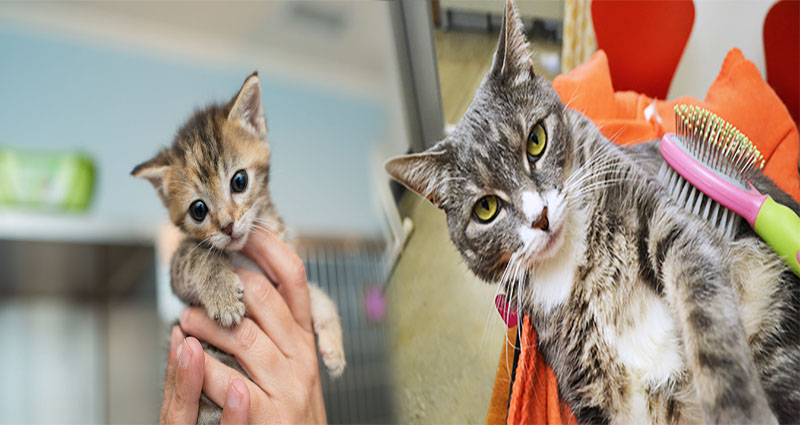If you are just starting out with kittens, there are a few things to keep in mind. These tips can make the transition easier for your new fur baby and help them thrive!
One of the first things you need to do is socialize your new kitty. This is essential for them to feel comfortable around others and be able to adapt to changes as they come.
Feeding
The right food and feeding schedule can make all the difference to your kitten’s growth and development. By providing your kitten with high-quality pet foods and establishing a good feeding routine, you can set them up for a healthy and happy life.
The best diets contain high-quality protein and carbohydrate sources, which provide the nutrients your kitten needs for healthy development. They also contain ingredients that support optimal digestive health, including whole grains and fibre.
To introduce solids to your kitten, start by mixing warm canned kitten food with prepared formula in a dish or shallow saucer. Then gradually mix less water with the mixture until it turns into a thin gruel.
This can be messy, but it’s a great way to bond with your kitten and help them understand they are safe to eat from you. The process can take a few weeks, but the results are well worth the time and effort! Keep a close eye on your kitten so they get the nutrition they need.
Training
Kittens are a lot like children, in that they need to be trained and cared for. Getting them started early will ensure they grow up into well-adjusted, loving pets!
Training a kitten should always be done in a calm, positive and soothing manner. Using harsh handling, hitting or a harsh tone can cause your kitty to become anxious and shut down.
Instead, use a soft tone and gentle pats on their head to reinforce good behavior. This will prevent your kitten from developing unwanted behavioural patterns.
For example, if you are trying to get your kitten to sit, use a clicker or voice command and reward it with treats when it does so correctly.
Once your kitty learns to sit, move on to more complex behaviors such as jumping and walking. This is one of the most important skills to train as it will help them be more independent and reduce the risk of injuries when they are older.
Grooming
A kitten needs a lot of grooming, especially if they have medium or long hair. This will help keep your cat free of tangles and prevent their coat from matting.
Grooming should be an enjoyable bonding activity and part of your regular routine. It will also give you an opportunity to assess your cat’s health and help develop your relationship with them.
To start with, gently brush the back of your kitten, using a comb or soft-bristle brush. Offer verbal praise and a treat after each session to make it more enjoyable for both of you.
It is important to remember that not all cats enjoy being brushed, so it can be worth offering a choice. If they do not choose to be brushed, then it is best to move away from that area and continue with the grooming in other parts of their body.
It is also important to be gentle when handling the tummy areas as some cats will prefer not to have their fur touched. It is always best to groom in short bouts rather than in one go, and never ‘forcibly’ stroke or groom a kitten without first checking they are happy with the experience.
Health Care
Kittens can be very ill, so it’s important to take them to the vet for check-ups and vaccinations. They also need to be dewormed as part of their first visit, and may require a flea and parasite control regimen.
Your vet will also be able to provide you with advice on feeding your kitten and how to train them to use the litterbox. Your vet will likely recommend a high-quality kitten food that meets their nutritional needs and includes extra vitamins, minerals, fat and protein to support growth.
The most important part of taking care of your kitten is providing them with a safe and secure space to live in. This should be a special room that you have already set up for them with their litter box, food and water dishes and comfortable bedding.
Your vet will also be able to help you with annual health checks, vaccinations, microchipping, desexing and flea and worm prevention. You can also get a Puppy/Kitten Preventative package through Lemonade Pet Insurance that will help cover these expenses, so you can spend less time worrying about your new fur baby’s health and more time enjoying them.












